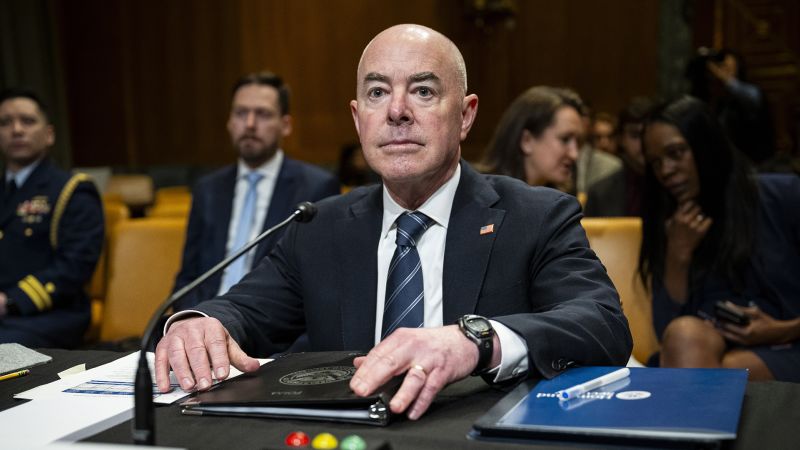The US Senate voted to end the impeachment case against Homeland Security Secretary Alejandro Mayorkas, marking the first attempt by Congress to oust a Cabinet secretary in over 150 years. The Senate swiftly killed the trial with procedural votes that split along partisan lines, with Democrats and three independents voting to stop the process, while the Republican-controlled House originally impeached Mayorkas in February. The vote to consider the first article of impeachment failed 51-48, with one Republican senator voting present, and the vote to kill the second article split 51-49, with the same senator siding with her party. Three independent senators sided with the Democrats on both votes.
The first article of impeachment accused Mayorkas of failing to secure the borders and enforce immigration laws, leading to a crisis at the southern border. The second article focused on accusations of abuse of power and mismanagement related to the processing of visa applications. The votes to reject both articles effectively ended the impeachment case and allowed Mayorkas to remain in his position as Homeland Security Secretary. While reasons for voting against the impeachment varied among senators, the split along party lines highlighted the deeply divided political climate in Washington.
The historic vote to end the impeachment case against Mayorkas showcased the rare occurrence of attempting to remove a Cabinet secretary from office. With the procedural votes effectively halting the Senate trial before it could make significant progress, the decision to end the case marked a significant moment in US political history. The divisive nature of the vote reflected the ongoing challenges of bipartisanship and cooperation in Congress, highlighting the difficulties in reaching consensus on highly contentious issues.
Despite the efforts to impeach Mayorkas, the Senate ultimately decided to reject both articles and allow him to continue serving as Homeland Security Secretary. The split votes on the articles of impeachment demonstrated the deep divisions between Democrats and Republicans, with only a few senators breaking ranks to vote against their party. The decision to end the case against Mayorkas may have long-term implications for future impeachment proceedings and the accountability of Cabinet members, as it set a precedent for handling similar situations in the future.
The outcome of the Senate vote brought an end to the impeachment case against Mayorkas and allowed the focus to shift back to other pressing legislative matters. The decision to reject both articles of impeachment signaled a victory for the Biden administration, which had stood by Mayorkas throughout the process. As Mayorkas continued to lead the Department of Homeland Security, the fallout from the impeachment attempt raised questions about the effectiveness of such efforts in holding government officials accountable and addressing perceived wrongdoing in the executive branch. The consequences of the impeachment case against Mayorkas may shape future debates over the role of Congress in overseeing Cabinet officials and ensuring ethical conduct in government.













